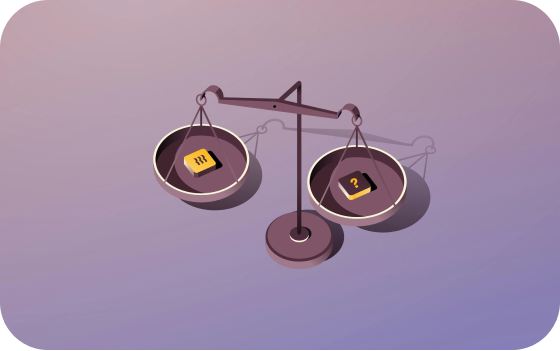
Hire and pay employees in Latvia quickly and compliantly

Complying with labor and employment laws in Latvia
Latvian labor relations revolve around Darba likums, or the Latvian Labour Law, with influence from EU directives. Whether your business is in tech, tourism, or manufacturing, abiding by these rules ensures you treat employees fairly and compliantly, especially in a culture that prizes a careful balance between collective good and respect for individual rights.
No matter where in the world you hire, learning the ins and outs of labor and employment laws in new jurisdictions isn’t easy, and Latvia’s laws are as complex as any other country’s. If you’re looking to hire in Latvia, simplify your compliance work by partnering with Rippling EOR, which can offer expert HR support on local employment regulations so your business is always up to date on the latest laws in Latvia and beyond.
Employment contracts in Latvia
Chapter 9 of the Labour Law in Latvia requires employment contracts to be in writing and executed before an employee begins work. Under the law, all employment contracts must include:
- Basic information, which includes names, personal identity numbers, and addresses for the employer and employee
- The employee’s start date
- The duration of employment, if applicable, including specifying whether the contract is indefinite or fixed-term
- The place of work, if there is one
- A job description, including the employee’s profession, position, specialty, and the general characteristics of the work
- The employee’s salary, including the amount of pay and when it will be disbursed
- The employee’s work hours, including whether their schedule will be part-time or full-time, fixed or variable, and the minimum notice required for schedule changes
- Annual paid leave that the employee will receive
- Termination procedures, including how much notice is required
- Collective agreement, if applicable
- Probationary period, including details such as how long it lasts, if applicable
- Social security details
- Other details, such as training information
Employment contracts can be indefinite or fixed-term. Fixed-term contracts can last up to five years; then, if the employee continues working for more than five days, the contract automatically becomes indefinite.
Labor unions in Latvia
Unionization in Latvia is less prevalent than in some other EU nations, but it’s still recognized and protected under the Constitution and the Labour Law. The Free Trade Union Confederation of Latvia (LBAS) is a key umbrella group for multiple industry unions.
Here are some of the key things employers need to know about Latvia’s union landscape:
- Collective bargaining is prevalent where unions exist. Where present, unions may negotiate pay above the statutory minimum or enhanced employee benefits.
- Unions provide workplace representation, especially in larger companies. Larger organizations might have internal union committees.
- Strikes are permitted if negotiations fail, though certain essential services have restrictions.
If you operate in a sector with strong union presence, such as public transport or manufacturing, early engagement with unionized workers fosters smoother relations. For most white-collar roles, like tech or finance, union involvement might be minimal but still possible.
Mitigating permanent establishment risk in Latvia
A permanent establishment (PE) is a legal and tax concept that refers to a fixed location, such as an office, branch, or factory, where a business regularly conducts its activities in a foreign country. If an organization establishes PE in another country, intentionally or not, it typically means they have to pay corporate income taxes on the revenue they earn in that jurisdiction.
Under the Latvian Taxes and Duties Act, a non-resident business risks triggering PE if it meets all three of the following conditions at the same time:
- It uses a fixed place for business activities in Latvia.
- It uses that place permanently or establishes it for permanent use.
- It conducts commercial activities there.
A non-resident business can also trigger PE if it meets one of these conditions:
- It uses a construction site or performs construction or installation work, or carries out supervision or consulting activities related to such work.
- It uses equipment or installations, drilling platforms, and/or special ships meant for research or extraction of natural resources, or carries out supervision or consulting activities related to such work.
- It provides consulting, management, or technical services for a period exceeding 30 days in any six-month period.
- It has representatives in Latvia who are authorized to enter into contracts on behalf of a foreign entity and exercise that authority more than once in a tax period.
Businesses expanding to, doing business in, or hiring in Latvia can mitigate their PE risk by:
- Keeping employees in supportive roles only and avoiding direct contract signings in Latvia
- Concluding major sales or signings outside Latvia
- Documenting staff tasks carefully to show no final authority for contract closures
- Consulting a local tax advisor for clarity about the risk of inadvertently forming a PE in Latvia
Probationary period in Latvia
Employment contracts can stipulate probationary periods of up to three months for indefinite-term employees. The employer can choose a probation period shorter than this but cannot extend an employee’s probation beyond the statutory maximum. Collective agreements can also stipulate a different probationary period, but the same rules apply—they cannot be longer than three months.
For fixed-term employees with contracts of up to six months, probationary periods can last up to one month. For fixed-term employment lasting up to one year, probation can last up to two months.
Local laws in Latvia
Beyond the Labour Law, employers in Latvia must heed other rules and regulations, like data protection laws and new rules around non-competes for ex-employees. Observing the entire landscape of labor and employment laws fosters trust among employees and ensures your business doesn’t hit compliance snags during its expansion into Latvia.
Here are some key areas of Latvian law relevant to foreign employers:
- GDPR: Latvia enforces the European Union’s GDPR, meaning employers must be careful when collecting, handling, and storing personal data belonging to employees and job candidates.
- Equal pay for equal work: Under Chapter 17 of the Labour Law, employers are required to pay equal amounts to men and women for the same job or work of equal value.
- Non-competes are allowed, but restricted: New rules around non-compete clauses for ex-employees dictate that employers must state protected trade secrets in writing, the agreements can’t extend longer than two years, and employees must receive monthly payments for respecting them.
While the Darba likums addresses employment fundamentals, these additional laws fill out the broader compliance puzzle. By respecting data privacy and other laws, you align with the local culture and increase the odds of a successful expansion into Latvia’s business environment.
Worker classification and misclassification in Latvia: Contractors vs. employees
Latvian authorities differentiate employees, who fall under the Labour Law, from independent contractors governed by civil or commercial agreements. Misclassifying an employee as an independent contractor can lead to State Revenue Service audits, back taxes, labor law claims, and other penalties for your business, so it’s important for all employers—local and foreign—to clearly understand the difference.
Directing a worker’s daily tasks and hours or providing them with their primary work equipment may be signs that they’re an employee, not an independent contractor. Learn more about the key distinctions between the two under Latvian law below.
Worker classification in Latvia: Key differences between contractors and employees
Independent contractor
An individual or business that provides goods or services to another entity under the terms specified in a contract.
Full-time employee
An individual who is hired by a company to work on an ongoing basis and is entitled to certain benefits and protections.
Employment agreement
The contractor and their client make a civil agreement, which falls under Latvian civil law.
The employer and employee make an employment agreement, which is governed by Latvia’s Labour Law.
Supervision and control
Independent contractors are not bound by their clients’ internal rules and orders and shouldn’t be subject to disciplinary measures.
Employees are bound by internal rules and orders and can be disciplined as the employer sees fit.
Place of work
Independent contractors are typically free to determine where they complete their work and shouldn’t be required to report to a specific job site unless the role or task calls for it.
Employees can be required to work at the employer’s place of business, which should be outlined in their employment contract.
Work hours
Independent contractors are self-employed and have more freedom to set their own work hours unless a specific project or task requires working at a certain time.
Employees can be required to work set hours, which should be specified in their employment contract.
Payment
Independent contractors receive agreed-upon fees for work completed.
Employees receive salaries or wages at regular intervals.
Benefits
Independent contractors don’t receive the same benefits and protections as employees under the Labour Law.
Employees are entitled to annual paid leave, minimum wage, parental leave, and other benefits and protections.
Taxes
Independent contractors calculate and remit their own taxes.
Employers withhold and remit taxes on their employees’ behalf.
Work duration
Independent contractors should work under time-bound agreements that end once they complete the work or achieve the intended result.
Employees typically work indefinitely, unless there is a reason for a fixed-term contract.
Consequences of misclassification in Latvia
If the State Labour Inspectorate or a court finds that a worker labeled as a contractor is effectively an employee, your business could face a number of consequences. Some potential penalties include:
- Unpaid social contributions: You may be on the hook for the employer’s share of missed social insurance, plus interest and/or penalties.
- Potential fines: Depending on the severity or scale of noncompliance, penalties could be levied against your company.
- Back benefits: The worker could claim leave pay, notice periods, or severance if they left your company before the misclassification was discovered.
If you instruct an independent contractor on their daily tasks, set their work schedule, and rely on them exclusively, it may be an employment relationship and could raise red flags with authorities. Maintaining a legitimate contractor arrangement means they can operate autonomously and handle multiple clients.
Take our FREE misclassification analyzer quiz
Misclassification risk can come out of the blue. Ensure you’re classifying workers correctly through a series of questions.
Learn MoreWages and payroll in Latvia
When expanding into (or hiring in) a new, foreign jurisdiction, managing wages and payroll is one of the most complex parts of the process. But Latvian payroll is fairly straightforward if you know the minimum wage, typical monthly pay cycles, and the approach to social insurance withholdings. Just know that calculating your new employee’s salary is only the first step, and you’ll still need to comply with labor and tax laws and make proper withholdings for each employee you hire in the country. Here’s what employers need to know about wages and payroll in Latvia.
Minimum wage in Latvia
As of Jan. 1, 2025, Latvia’s national minimum wage is €740 per month. According to the Labour Law, the minimum wage applies to full-time employees, who must receive no less than the minimum. Collective agreements may specify higher minimum wages for certain industries or groups of employees, but they cannot be lower than the national minimum. Latvia’s Cabinet of Ministers determines other minimum wage rules, like how often the minimum wage is reviewed and adjusted.
In Latvia’s main population centers, like Riga, many employees earn well above this baseline, especially in tech or professional roles. However, it’s still important for employers to know the minimum wage thresholds to avoid penalties for noncompliance.
Payroll frequency in Latvia
There’s no single pay cycle dictated by Latvian law, but typically, employers pay their employees monthly or bi-weekly. The Labour Law mandates that employers pay wages at least once per month, and payroll frequency—along with the dates—must be stated in the employment contract.
The last day of the month is a common payday. Making accurate and timely payments to Latvian employees helps build trust in a workforce that values reliability.
13th month pay in Latvia
13th month pay is an additional salary payment that employees often receive as a vacation or holiday bonus. In some parts of the world, 13th month salary payments are mandatory.
Latvian law does not require a 13th (or 14th) month salary. Some companies choose to offer an annual bonus—often around the Christmas holiday season—but it’s purely discretionary. The one exception is if a bonus is stipulated in the employment contract. If that’s the case, the employer is required to honor the contract and pay the bonus, but this is not a statutory norm.
If you choose to adopt any type of bonus structure, performance-based or otherwise, specify the terms in employment contracts or staff handbooks to avoid misunderstandings in a workforce that otherwise expects only the standard monthly wage.
Run payroll compliantly in Latvia
Complying with payroll and wage laws in Latvia means paying at least the monthly minimum wage to all full-time employees, withholding the correct personal income tax, and paying social contributions (which we’ll cover in the next section). The State Revenue Service (VID) monitors these diligently, so it’s crucial for employers to stay compliant with all the relevant laws where they employ their global workforce.
Working with an EOR means getting all the help you need to handle deductions, adhere to local wage laws, and make accurate, on-time payments. Rippling EOR makes hiring and paying employees across the globe quicker and easier than ever.
Employer and employee taxes in Latvia
For any organization with a global team, one crucial, yet complex, part of business operations is understanding how to navigate taxes across international borders. Latvia’s tax framework merges EU standards with local statutes, which the State Revenue Service (Valsts ieņēmumu dienests, or VID) oversees. Employers need to know how to calculate the right withholdings from their employees’ salaries, remit social contributions, and follow other relevant rules and regulations to stay compliant.
Here are the key things to understand about employer and employee taxes in Latvia.
Employer taxes in Latvia
Tax
Tax Rate
National Social Insurance and Solidarity Tax (NSIC)
23.59%
Employee taxes in Latvia
Tax
Tax Rate
National Social Insurance and Solidarity Tax (NSIC)
10.5%
Latvian employees also pay progressive income tax, meaning they pay higher tax rates the more they earn.
Annual Income
Income Tax Rate
Up to 20,004 EUR
20%
20,005 – 78,100 EUR
23%
78,100 EUR and above
31%
Penalties for not paying taxes in Latvia
Failing to withhold or file taxes properly, including not withholding employees’ income tax or your own social security contributions, can attract fines, surcharges, and possible investigations by VID. In a small, interconnected economy like Latvia’s, reputation matters, so timely compliance is crucial.
Look out for these common noncompliance risks for foreign businesses operating in Latvia:
- Late filings: Missing monthly or annual submission deadlines may trigger interest on unpaid amounts plus penalty fees.
- Underreporting wages: If underreported wages are discovered, you may owe back taxes, social contributions, and potential administrative fines.
- Incorrect worker classification: If you misclassify employees as contractors, you risk paying missed social security plus potential penalties.
Thorough monthly wage tax declarations are vital in a country like Latvia. While the VID often guides first-time errors with some leniency, repeated or deliberate noncompliance can trigger steeper fines. A robust payroll system or local accounting support can save you from such pitfalls, or you can mitigate international tax compliance problems by letting an EOR handle payroll taxes on your behalf. The EOR can ensure all your local taxes are paid correctly and on time, allowing you to focus on growing your business in Latvia and beyond.
Employee benefits in Latvia
In Latvia, full-time employees covered by the Labour Law are entitled to a number of statutory benefits, but employers can go beyond the mandatory minimums and offer additional, optional perks to make their organizations more appealing to top talent. Having a comprehensive employee benefits package is one of the best ways to attract and retain workers in a competitive hiring landscape in Latvia and beyond.
Here’s an overview of statutory and optional benefits in Latvia.
Mandatory benefits in Latvia
Mandatory benefits (also called statutory benefits) are legally required. In Latvia, these are outlined in the Labour Law. Employers must provide them to all employees covered by the law as they’re non-negotiable. In addition to leave, mandatory benefits in Latvia include:
- Social Insurance: Both employers and employees contribute to Latvia’s social insurance scheme, which covers:
- Pensions: Retirement savings for employees
- Unemployment insurance: Benefits employees can claim upon losing their job, if they’ve worked at least one year and have contributed to the fund for at least 12 out of the prior 16 months
Optional benefits in Latvia
Beyond the statutory benefits that employers must provide for eligible employees, many Latvian businesses sweeten the deal with additional perks and fringe benefits, which can help attract top-tier talent.
Here are a few optional benefits you might consider adding to your package to help you stand out in Latvia:
- Private health insurance: Private coverage to supplement state-run healthcare, particularly valued among white-collar staff
- Lunch vouchers: Food allowances to help employees offset the cost of workday meals
- Flexible hours: For staff to manage school runs or personal errands, a plus in congested areas
- Professional development: Paying for conferences, training, or e-learning in an economy pushing for skill upscaling
While not mandated by law, these types of perks can set your brand apart in a highly skilled workforce. Given the importance of personal growth and well-being, offering above the basics resonates well in a society that prides itself on continuous improvement.
Working hours, overtime, and leave in Latvia
One of the most complex aspects of global employment is how working hours, overtime, and leave laws all vary significantly across international borders—and sometimes even in different jurisdictions within the same country. When you hire international employees, you must be familiar with all the relevant laws, because compliance is crucial to avoid penalties and ensure a safe, fair working environment.
Latvia’s Labour Law sets maximum weekly hours along with rules for rest periods and leave entitlements, aligning with EU working time directives and making workweeks relatively straightforward for employers already familiar with European work norms. Below, learn about Latvia’s laws so you can follow them to protect employees from overwork and ensure restful breaks.
Standard working hours in Latvia
Latvia’s typical work day is eight hours; a standard workweek is 40 hours spread over five days. A six-day workweek is allowed if employee representatives approve. In this case, an employee’s work day is seven hours instead of eight. If an employee works on a Saturday or a public holiday, employers must reduce their work hours.
Latvia has stricter rules for children:
- Children ages 13-15: Cannot work more than two hours a day or 10 hours a week during the school year, or four hours a day or 20 hours a week during school holidays
- Children ages 15-18: Cannot work more than seven hours a day or 35 hours a week
No one under the age of 18 can work during night hours, which are from 10 p.m. to 6 a.m. Children ages 13-15 cannot work between 8 p.m. and 6 a.m.
Overtime laws in Latvia
In Latvia, overtime is allowed if there is a written agreement between the employer and the employee. The agreement can’t be included in the employee’s contract—there must be a written agreement for each overtime instance. Under the Labour Law, employers can require overtime without written consent in exceptional cases where:
- There is an urgent public need
- To address force majeure, accidental events, or other extraordinary circumstances that impact the company
- There is urgent, unforeseen work that must be completed within a specific timeframe
Employees cannot work more than an average of eight hours of overtime per week, and they must receive at least twice their regular rate of pay, though collective agreements may stipulate a higher rate.
Rest period and break laws in Latvia
Latvia’s Labour Law also requires employees to have adequate rest, both during and between work shifts. At minimum, you must allow for:
- Daily rest: At least 12 consecutive hours every 24 hours
- Weekly rest: A minimum of 42 consecutive hours for each seven-day period, or two days for employees who work five-day workweeks (typically Saturday–Sunday or Sunday–Monday for shift roles)
- Breaks: A break, typically 30 minutes or more, for every six hours of work
Leave laws in Latvia
In addition to the rules around working hours and overtime, the laws in Latvia require employers to give their employees several different kinds of paid leave, from annual time off to maternity leave, sick leave, and more.
Here are the types of leave employees are entitled to receive in Latvia:
- Annual leave: Employees are entitled to a minimum of 20 days of paid annual leave each year, beginning in their first year of employment. Employers can give more time off than this, but not less than the statutory minimum.
- Sick leave: Employees are entitled to sick leave. The first day is unpaid, then the employer pays the second and third day at 75% of their regular salary and days four through 10 at 80% of their regular salary. If an employee needs sick leave beyond 10 days, it’s compensated by social insurance.
- Maternity leave: Paid maternity leave can last up to 140 days, 70 days before and after the birth of a child. It’s generally available to mothers, but in specific circumstances, fathers can claim maternity leave benefits.
- Paternity leave: Fathers are entitled to 10 days of paid leave, which they can use any time between the child’s birth and when the child is six months old.
- Parental leave: Latvia offers two types of parental leave, which parents can choose between:
- 13 months of leave, including nine months that must be used by one parent until the child is one year old and two non-transferable months for each parent that can be used until the child reaches the age of eight. This leave is paid at 60% of the parent’s average salary.
- 19 months of leave, including 15 months that must be used by one parent until the child is one-and-a-half years old and two non-transferable months for each parent that can be used until the child reaches the age of eight. This leave is paid at 43.75% of the parent’s average salary.
- Study leave: Study leave is allowed if it’s included as a benefit in the employee’s collective agreement. The employer can decide whether the leave is paid or unpaid.
- Public holidays: The Republic of Latvia observes 12 public holidays. These include:
- New Year’s Day
- Good Friday
- Easter Monday
- Labour Day
- Independence Restoration Day
- Midsummer’s Eve
- St. John’s Day
- Independence Day
- Christmas Eve
- Christmas Day
- Second Day of Christmas
- New Year’s Eve
Work permits in Latvia
Hiring Latvian employees may be your goal, or, as you expand your business footprint in Latvia, you may need to bring in foreign talent, too. Doing so may require getting the right work permits, depending on their circumstances. Latvia belongs to the European Union, so workers from fellow EU/EEA countries are able to gain employment there without needing a typical work permit. However, non-EU/EEA/Swiss nationals typically need a work permit to undertake paid work on Latvian soil.
The process is overseen by the Office of Citizenship and Migration Affairs (Pilsonības un migrācijas lietu pārvalde, OCMA). Regardless of the type of work the applicant will be doing, navigating the steps correctly to apply for a visa is crucial for compliance. Here’s what employers need to know.
Who needs a work visa in Latvia?
In general, any non-EU/EEA/Swiss citizen will need the appropriate long-stay visa or residence permit linked to employment to legally work in Latvia. Hiring most European employees is more straightforward; EU/EEA/Swiss nationals can enter and work in Latvia without obtaining a permit beforehand, but if they want to stay longer than three months, they’ll need to register with OCMA.
How long does it take to get a work visa in Latvia?
Processing an employment visa in Latvia typically takes four to eight weeks, but timelines can vary significantly depending on OCMA’s backlog and whether the application is complete when submitted. Non-EU/EEA/Swiss foreign nationals who plan to work in Latvia must apply for a long-stay visa. Required documentation includes:
- Passport
- One passport photo
- A completed application form
- An invitation from the employer, approved by OCMA
- An employment agreement
- Proof of financial means
- Proof of accommodation in Latvia
- Proof of previous employment
- Proof of education
- Travel medical insurance
- 90-euro visa fee
Types of work visas in Latvia
Latvia offers several types of visas for short-term visitors, but for foreign nationals who intend to gain employment within the country, the only option is a Type D visa (or long-stay visa). This type of visa allows foreign nationals to enter Latvia and stay longer than 90 days. They can also travel freely within the Schengen Area on this visa. After getting their Type D visa and arriving in Latvia, the employee will need to obtain a residence permit and a work permit before they can begin employment.
Termination and redundancy in Latvia
During the hiring process, you may not be thinking ahead to termination procedures. But Latvia’s Labour Law stipulates that ending an employment relationship—be it for performance or redundancy—follows structured procedures. Understanding the rules around termination and redundancy not only protects your brand’s reputation but also protects you from legal disputes that can arise if you terminate an employee without following the law.
Here’s what to know about termination and redundancy rules in Latvia.
Does at-will employment exist in Latvia?
At-will employment is a legal principle common in the US that states that either an employer or employee can end an employment relationship at any time, for any reason—or even without a reason—provided they don’t break any laws (for example, at-will employment doesn’t allow an employer to terminate an employee for any reason that could amount to discrimination).
At-will employment does not exist in Latvia. Employers must typically present a valid reason for the dismissal of an indefinite employee. And on the other side of the equation, employees can resign only with a set notice period to avoid leaving employers in the lurch. Some examples of recognized grounds for termination in Latvia include:
- Employee misconduct (serious or repeated violation)
- Redundancy (organizational changes or cutting costs)
- Inability to perform based on physical or skill-based limitations
- Mutual agreement (typically with a settlement)
You can’t just part ways spontaneously if the role is indefinite. Employers need a valid reason or a mutual agreement. This protective approach reflects an EU-aligned stance, which gives employees stability and job security.
Notice periods in Latvia
When an employer ends an employment agreement in Latvia, they must give at least one month’s notice. If the employment relationship ends because the employee breaches the agreement, then they’re entitled to a minimum of 10 days’ notice under Latvia’s Labour Law. In certain circumstances where the employee is terminated with cause, employers may end the contract immediately.
An employee’s collective agreement or employment contract can stipulate a required notice period longer than one month, but it can’t be shorter than the statutory minimum.
Severance pay in Latvia
Latvian Law doesn’t mandate a universal severance for all dismissals. No statutory severance pay is required if an employee is terminated for just cause (like misconduct). In that case, the employer only needs to pay them wages due and notice pay, if appropriate.
Certain termination grounds, like redundancy, may require a severance package. The specifics revolve around the employee’s length of service:
Employee’s Length of Service
Severance Pay
Up to five years
One month’s pay
Between five and 10 years
Two months’ pay
10-20 years
Three months’ pay
Over 20 years
Four months’ pay
How to terminate employees compliantly in Latvia
Ending an employment contract in Latvia requires a valid reason, proper notice, and possibly severance if it’s for redundancy. Mishandling any step can lead employees to the courts or the labour inspectorate. Here are the key steps in the process:
- Identify valid grounds for the termination. Latvia doesn’t recognize at-will termination. Make sure the reason is recognized (e.g., redundancy, misconduct).
- Offer notice for the terminated employee. The required minimum is one month for indefinite staff, but collective agreements or individual contracts can stipulate longer notice periods.
- Carefully document everything. Provide a formal letter explaining the rationale, referencing relevant Labour Law articles.
- Pay the employee’s final settlement. Pay out any outstanding wages and accrued leave, plus severance if the termination is due to redundancy.
When managing a global team, keeping track of termination regulations can be a challenge. Employers have to contend with just-cause rules, varying notice and probation periods, and inconsistent severance laws across different jurisdictions. Instead, consider partnering with an EOR solution, which can take care of compliance on your company’s behalf, ensuring you stay on the right side of the law from onboarding to offboarding.
FAQs about hiring in Latvia
Can I hire employees in Latvia without my own legal entity?
Yes. An employer of record (EOR) can legally employ staff and handle payroll, taxes, and compliance with the Labour Law. You direct daily tasks while avoiding the burden of establishing a local entity. However, EOR fees can add up if your workforce expands significantly.
An EOR like Rippling can help you quickly tap into Latvia's talent pool, grow your global workforce, and reduce both compliance risks and administrative workload.
How do I onboard employees in Latvia?
A comprehensive onboarding process allows you to build a foundation for a strong working relationship with your international team members. And onboarding begins well in advance of a new hire’s first day, so plan to get started on the administrative tasks like paperwork and background checks early on. New hires need written employment contracts, and you must register them with the State Revenue Service (for tax and social contributions).
What is the difference between an independent contractor and an employee in Latvia?
In Latvia, an employee is bound by an employment contract, follows their employer’s instructions and hours, receives statutory benefits (leave, social insurance coverage, etc.), and is covered by the Labour Law. An independent contractor is engaged via a civil or commercial agreement, sets their work process, covers their own social insurance, and doesn’t receive annual leave or notice entitlements.
How much does it cost to hire an employee in Latvia?
Aside from gross salary, you’ll need to factor in employment costs related to Latvia’s social insurance scheme. Employers contribute 23.59% for each employee:
Tax
Tax Rate
National Social Insurance and Solidarity Tax (NSIC)
23.59%
What are the requirements for work permits in Latvia?
Non-EU/EEA/Swiss nationals typically need a long-stay visa, residence permit, and work permit in order to live and work in Latvia. Their employer will need to coordinate with the Office of Citizenship and Migration Affairs (OCMA), providing a valid job contract, proof that locals can’t easily fill the position, and other documents. Processing can take several weeks without delays.
What is always required when an employer terminates an employee in Latvia?
At-will employment isn’t recognized in Latvia, so employers must provide a valid reason, appropriate notice (one month for indefinite employees), final settlement, and severance pay, in some cases.
How does a US company pay a foreign employee in Latvia?
There are generally three ways a US company can pay a foreign employee in Latvia:
- Form a local entity and open a local bank account to run payroll according to Latvian law (including all relevant withholdings).
- Partner with an EOR that specializes in global employment and manages salary, insurance, and taxes on your behalf.
- Use a global payroll service that can integrate payroll for multiple countries.
Disclaimer: Rippling and its affiliates do not provide tax, legal, or accounting advice. This material has been prepared for informational purposes only, and is not intended to provide, and should not be relied on for, tax, legal, or accounting advice. You should consult your own tax, legal, and accounting advisors before engaging in any related activities or transactions.




















































































































